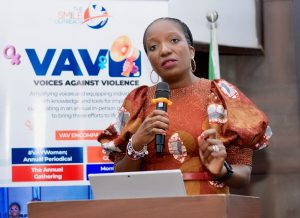Have you ever wondered why, despite significant progress in many areas of society, domestic and sexual violence remain persistent issues? The answer lies partly in awareness—or the lack thereof. In this article, we’ll explore the crucial role of awareness campaigns in combating these pervasive forms of violence and how each of us can contribute to this vital cause.
Understanding the Scope: A Silent Epidemic
Before we delve into awareness strategies, it’s essential to grasp the magnitude of the problem we’re facing:
- Prevalence: Domestic and sexual violence affects millions worldwide, regardless of age, gender, race, or socioeconomic status.
- Hidden nature: Many cases go unreported due to fear, shame, or lack of support.
- Long-term impact: The effects of these forms of violence extend far beyond the immediate incident, affecting mental health, physical well-being, and societal stability.
Key Statistics:
- 1 in 3 women worldwide have experienced physical or sexual violence in their lifetime.
- 1 in 6 men have experienced sexual violence.
- Children who witness domestic violence are at higher risk of perpetrating or experiencing violence as adults.
- The economic costs of violence against women are estimated at 2% of global GDP.
These numbers underscore the urgency of raising awareness and driving change.
The Power of Awareness: Why It Matters
Awareness is the first step in addressing any societal issue, and domestic and sexual violence are no exceptions. Here’s why awareness campaigns are crucial:
- Breaking the silence: Encourages victims to speak out and seek help
- Educating the public: Helps people recognize signs of abuse and understand how to respond
- Challenging norms: Questions societal attitudes that perpetuate violence
- Mobilizing resources: Increases support for prevention and intervention programs
- Influencing policy: Drives legislative changes to protect victims and hold perpetrators accountable
Effective Strategies for Raising Awareness
Raising awareness about domestic and sexual violence requires a multi-faceted approach. Let’s explore some effective strategies:
1. Public Education Campaigns
- Media outreach: Utilizing TV, radio, and print media to share information
- Social media campaigns: Leveraging platforms like Facebook, Twitter, and Instagram to reach wider audiences
- Community workshops: Organizing local events to educate and engage community members
2. Engaging Youth
- School programs: Implementing age-appropriate education on healthy relationships and consent
- Peer-to-peer initiatives: Empowering young people to become advocates among their peers
- Youth-led campaigns: Supporting youth in creating and running their own awareness initiatives
3. Workplace Initiatives
- Training programs: Educating employees on recognizing and responding to domestic and sexual violence
- Policy development: Implementing workplace policies that support affected employees
- Partnerships with local organizations: Collaborating with experts to provide resources and support
4. Utilizing Art and Culture
- Film and documentary screenings: Showcasing stories that shed light on the realities of domestic and sexual violence
- Theater productions: Using drama to explore complex themes and emotions
- Art exhibitions: Displaying works that provoke thought and discussion on the topic
5. Engaging Men and Boys
- Positive masculinity programs: Promoting healthy, respectful models of masculinity
- Bystander intervention training: Teaching men how to safely intervene in potentially violent situations
- Male ally initiatives: Encouraging men to speak out against violence and support survivors
Overcoming Challenges in Awareness Raising
While awareness campaigns are crucial, they often face significant obstacles. Understanding these challenges is key to developing effective strategies:
- Stigma and taboo: Many people are uncomfortable discussing domestic and sexual violence
- Victim-blaming attitudes: Persistent societal beliefs that blame victims for the violence they experience
- Lack of funding: Limited resources for sustained, large-scale awareness efforts
- Compassion fatigue: The public becoming desensitized to repeated messages about violence
- Cultural and language barriers: Difficulty in reaching diverse communities with culturally appropriate messages
Strategies to Address These Challenges:
- Tailored messaging: Crafting messages that resonate with specific communities and cultures
- Survivor-centered approaches: Amplifying the voices of survivors in awareness efforts
- Innovative funding models: Exploring partnerships with private sector and crowdfunding options
- Intersectional approaches: Addressing how domestic and sexual violence intersect with other social issues
- Continuous evaluation: Regularly assessing the impact of awareness campaigns and adjusting strategies accordingly
The Role of Technology in Awareness Campaigns
In our digital age, technology plays a pivotal role in raising awareness about domestic and sexual violence:
- Mobile apps: Developing apps that provide resources, safety planning, and emergency assistance
- Virtual reality experiences: Creating immersive experiences to build empathy and understanding
- Online training platforms: Offering accessible education on recognizing and responding to violence
- Data visualization tools: Using interactive graphics to make statistics more engaging and comprehensible
- AI-powered chatbots: Providing 24/7 support and information to those seeking help
Measuring Impact: Are We Making a Difference?
To ensure that awareness campaigns are effective, it’s crucial to measure their impact. Key indicators might include:
- Increase in reporting: More people coming forward to report incidents of violence
- Changes in public attitudes: Surveys showing shifts in perceptions about domestic and sexual violence
- Policy changes: New laws or policies implemented as a result of increased awareness
- Resource allocation: Increased funding for prevention and support services
- Media coverage: More nuanced and responsible reporting on issues of domestic and sexual violence
The Ripple Effect of Awareness
When we raise awareness about domestic and sexual violence, the positive impacts extend far beyond the immediate issue:
- Healthier relationships: As people become more aware, they’re better equipped to build respectful, non-violent relationships
- Safer communities: Increased awareness leads to more community intervention and support
- Economic benefits: Reducing violence can lead to decreased healthcare costs and increased productivity
- Generational change: Breaking the cycle of violence for future generations
- Societal progress: Moving towards a more equitable and just society for all
How You Can Make a Difference
You might be wondering, “What can I do to raise awareness about domestic and sexual violence?” Here are some ways you can contribute:
- Educate yourself: Stay informed about the issues and how to support survivors
- Speak up: Challenge myths and misconceptions when you encounter them
- Share resources: Spread information about helplines and support services
- Support local organizations: Volunteer or donate to groups working on these issues
- Engage in social media campaigns: Share posts and participate in online discussions
- Organize events: Host awareness-raising events in your community or workplace
- Be a supportive listener: Create a safe space for survivors to share their stories
Remember, every conversation, every shared post, and every act of support contributes to raising awareness and driving change.
Conclusion: A Call to Action
Raising awareness about domestic and sexual violence is not just about sharing information—it’s about catalyzing a cultural shift towards a society that does not tolerate any form of violence. It’s about creating a world where everyone feels safe, respected, and empowered.
As we continue to break the silence surrounding these issues, we pave the way for more open discussions, better support systems, and ultimately, prevention. The journey towards ending domestic and sexual violence is long and challenging, but with each person who becomes aware and takes action, we move one step closer to our goal.
What will you do today to raise awareness about domestic and sexual violence? How can we work together to create a world free from these forms of violence?
Your voice matters. Your actions count. Together, we can break the silence and empower change.




